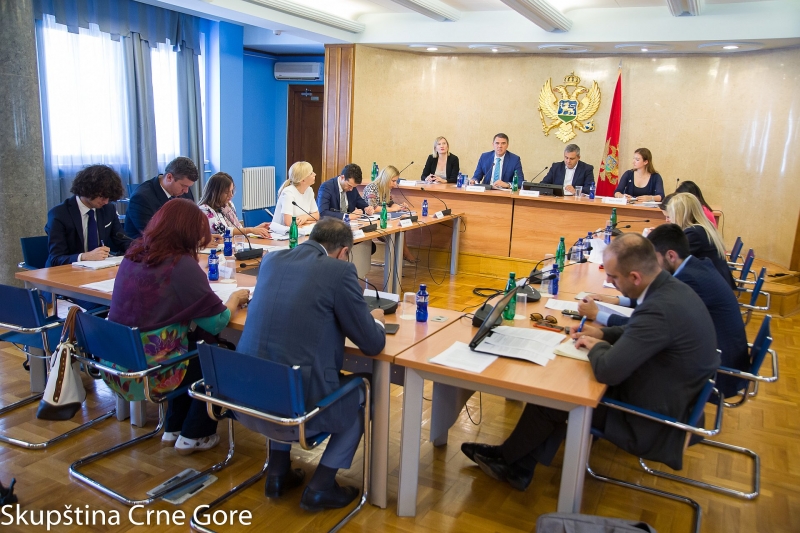At its 31st Meeting held today, members of the Committee on European Integration, with the Chief Negotiator for Montenegro's Accession to the European Union Mr Aleksandar Drljević in attendance, have adopted the Twenty-first quarterly report on the overall activities within the process of Montenegro’s integration in the European Union, for the period January - March 2019.
Furthermore, the following was also considered at the meeting: the Seventh and Eighth semi-annual reports on the implementation of the action plans for Negotiation Chapter 23 - Judiciary and fundamental rights, with the Fourth semi-annual report on the implementation of the Operating document for the prevention of corruption for 2018, as well the Seventh and Eighth semi-annual reports on the implementation of the action plans for Negotiation Chapter 24 - Justice, freedom and security, for the previous year.
Chief Negotiator Mr Aleksandar Drljević presented the key aspects of the semi-annual reports on the action plans for chapters 23 and 24. Drljević informed the Committee members about more intensive meetings of the negotiating structure, taking place at the level of the Government of Montenegro, once a month, emphasising the importance of the efforts that need to be invested in priority areas. In this regard, he noted that most of the 83 benchmarks in total were met. He added that representatives of the civil sector contributed to preparing and commenting on the given reports, and announced that it would soon be necessary to review the action plans, adjusting the documents to the current negotiation stage. The approach that will be in force for 2019 will include answers to questions from the European Commission, and not reports on the implemented activities in relation to the Action Plan.
In the discussion that followed, Chairperson of the Committee on European Integration Mr Slaven Radunović suggested that the reports should be more specific and present realistic assessments of the situation and specific results in relation to the challenges that exist in the areas of judiciary, fundamental rights, freedom, justice, and security. The Committee members were also interested in the additional comments on issues such as: trials in a reasonable time, cooperation with the non-governmental sector, ineffective legal remedies, failure to enforce court decisions, accountability mechanisms of state authorities, as well as reporting on progress assessments of judges.
The interlocutors agreed that it was necessary to improve the methodological approach and rationalise reporting, which supported the announcement of reviewing the action plans themselves and the new approach to reporting in 2019.
The Twenty-first quarterly report on the overall activities within the process of Montenegro’s integration in the European Union, for the period January - March 2019 was adopted with the majority of votes of MPs in attendance. Presenting the report, the Chief Negotiator emphasised the adoption of the Montenegrin Economic Reform Program for the period 2019 - 2021, Information paper on the implementation plan of the recommendations from the Media Sector Analysis in Montenegro for harmonisation with the standards of the Council of Europe and the European Union, as well as the Action Plan for the implementation of the closing benchmark for Chapter 2 - Freedom of movement for workers.
The meeting was also attended by members of the Negotiating Group for Chapters 23 and 24 Ms Marijana Laković-Drašković, as well as deputies of Chief Negotiator Mr Marko Mrdak and Ms Dragana Marković.












